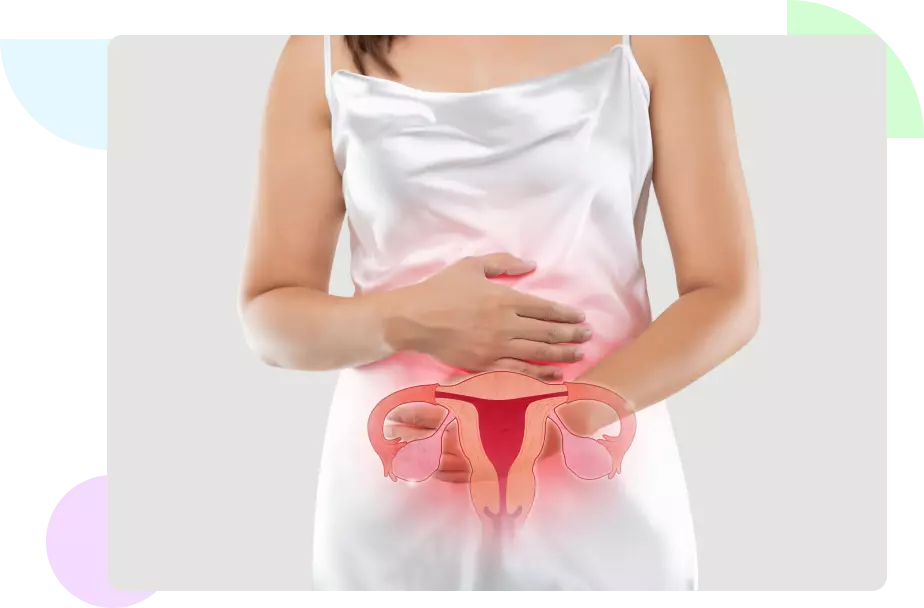
Polycystic Ovary Syndrome, or PCOS, is a prevalent hormonal condition affecting women who can conceive. Hormonal abnormalities that can cause irregular menstrual periods and the development of tiny sacs filled with fluid on the ovaries called cysts are its defining features.
Symptoms of this illness include irregular periods, hirsutism, or excessive hair growth, and problems becoming pregnant because of irregular or nonexistent ovulation.
Although the precise origin of PCOS is unknown, environmental and genetic factors are considered to play a role.
PCOS (Polycystic Ovary Syndrome) symptoms include:


The ovaries are often affected by hormone abnormalities in women with PCOS. The menstrual cycle is disrupted by these hormonal abnormalities, resulting in irregular periods or non-ovulation.
Elevated levels of androgens, or male hormones, like testosterone, can interfere with the ovaries' natural ability to grow and release eggs, and this is one important cause. PCOS is frequently linked to insulin resistance, a condition in which the body's cells do not react to insulin as they should.
This may result in higher blood levels of insulin, which might then help the ovaries produce more androgen. Inflammation and genetic susceptibility are two other possible causes of PCOS, although further study is required to completely comprehend how these elements interact.
To get the best care, a diagnosis must be accurate. As part of the diagnosis process, a medical specialist will often do a thorough examination. To confirm the diagnosis, the doctor could also advise further tests.
Medical History and Symptom Assessment: Detailed review of menstrual history and symptoms such as weight gain, acne, and much more.
Physical Examination: Pelvic exam to assess for signs like acne, hirsutism, and enlarged or swollen ovaries.
Blood Tests: Measurement of hormone levels including prolactin, luteinizing hormone (LH), follicle-stimulating hormone (FSH), testosterone, and much more.
Ultrasound: Transvaginal ultrasound to visualize the ovaries and detect multiple small cysts (follicles) typical of PCOS.


The goal of PCOS (Polycystic Ovary Syndrome) treatment is to enhance general health and reproductive outcomes by treating underlying hormonal imbalances and controlling symptoms.
Changing one's lifestyle is essential in managing weight and improving insulin sensitivity. A balanced diet rich in whole foods and frequent exercise are two examples of such alterations. This method lowers the risk of long-term metabolic problems including diabetes and helps regulate menstrual cycles.
Drugs are frequently used to control hormone levels and treat symptoms. Hormonal contraceptives, like birth control tablets, assist manage excess androgen production that causes symptoms like hirsutism and acne. They also help regulate periods. To treat these symptoms even further, doctors may additionally prescribe anti-androgen drugs.
Healthy Lifestyle: Eat a balanced diet low in processed foods and high in fruits, vegetables, whole grains, and lean meats to control weight and improve insulin sensitivity
Stress Management: Practice yoga, meditation, or mindfulness to reduce cortisol levels and minimize stress's impact on hormone balance.
Avoid Smoking and Excessive Alcohol: Both can disrupt hormone levels and worsen PCOS symptoms, so avoiding them promotes hormonal health.

